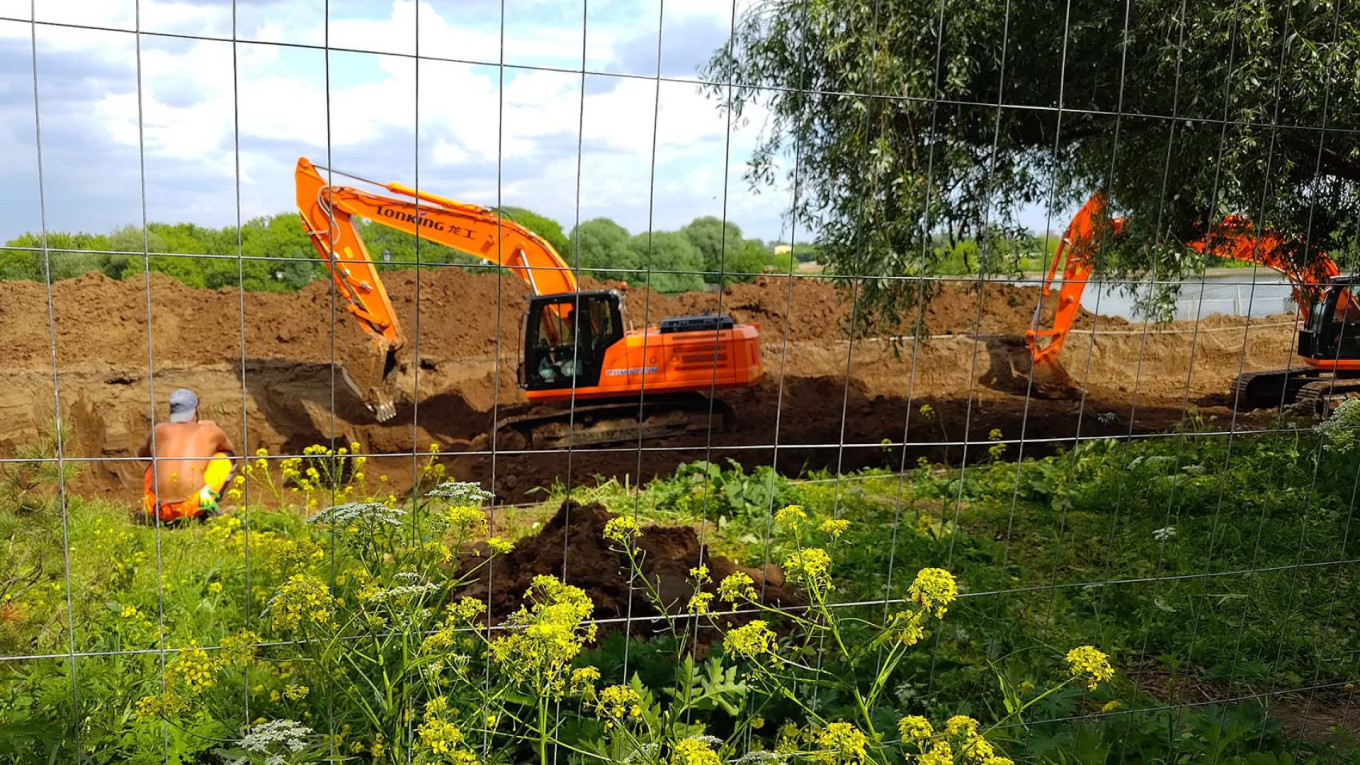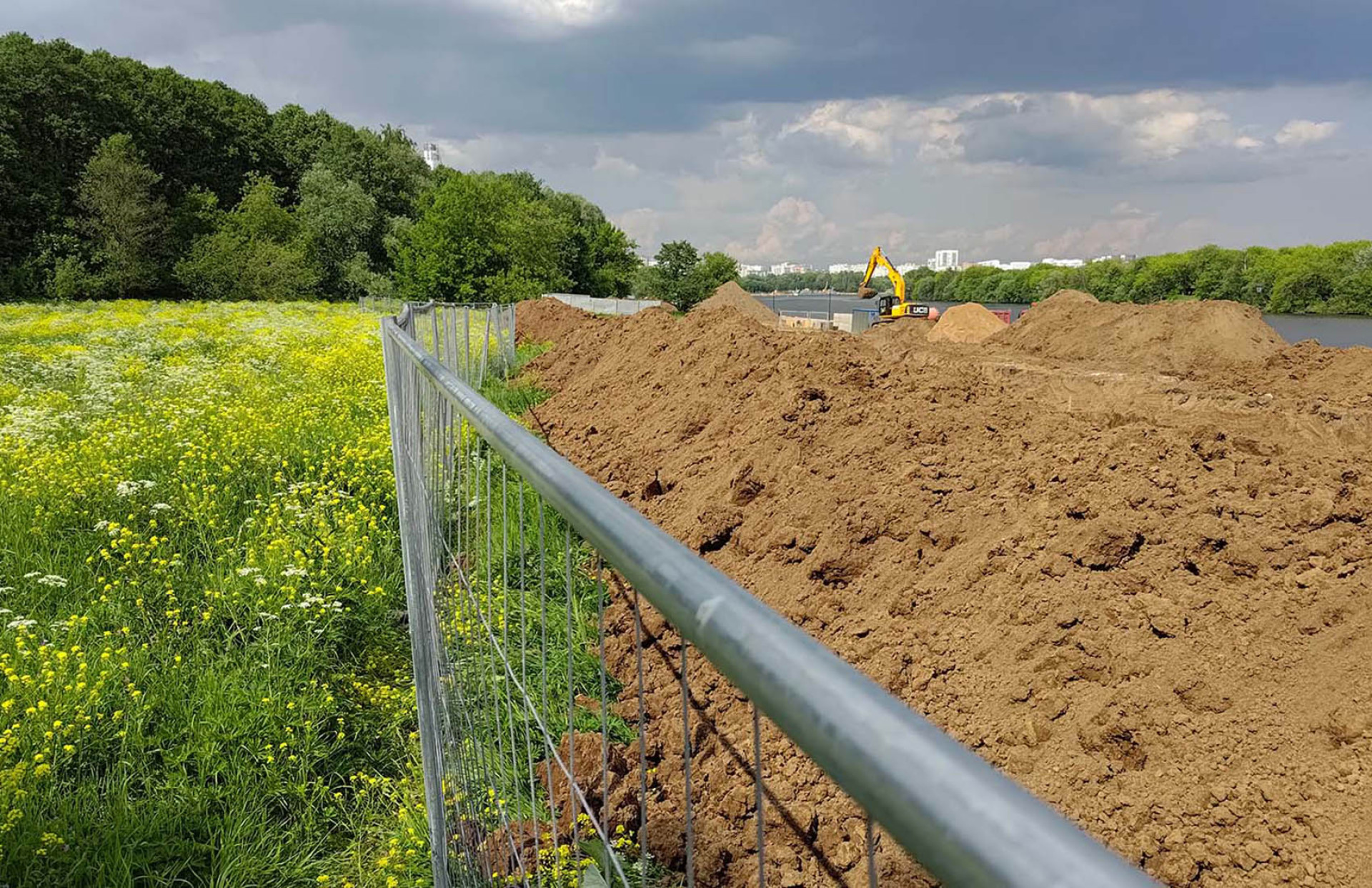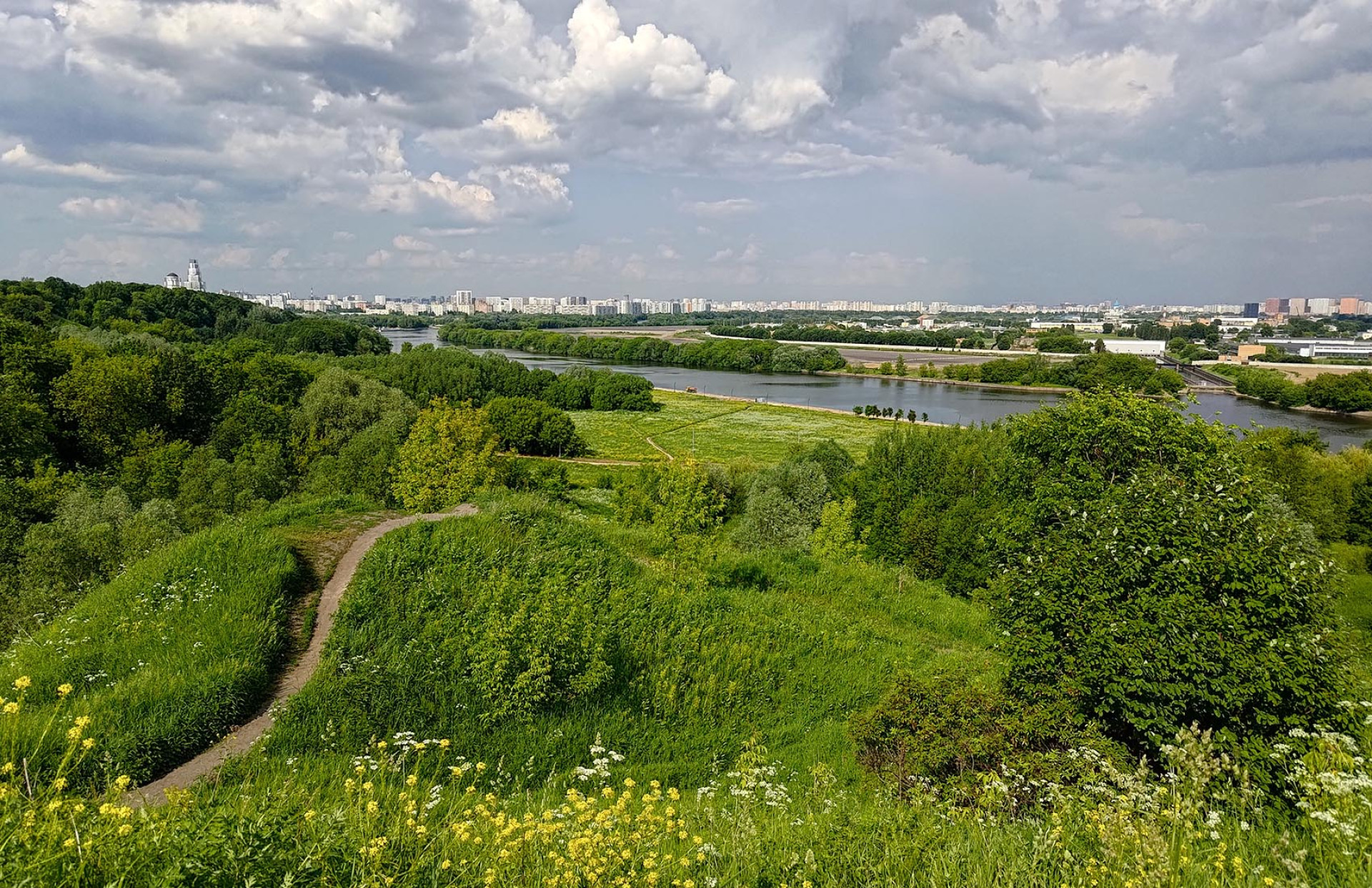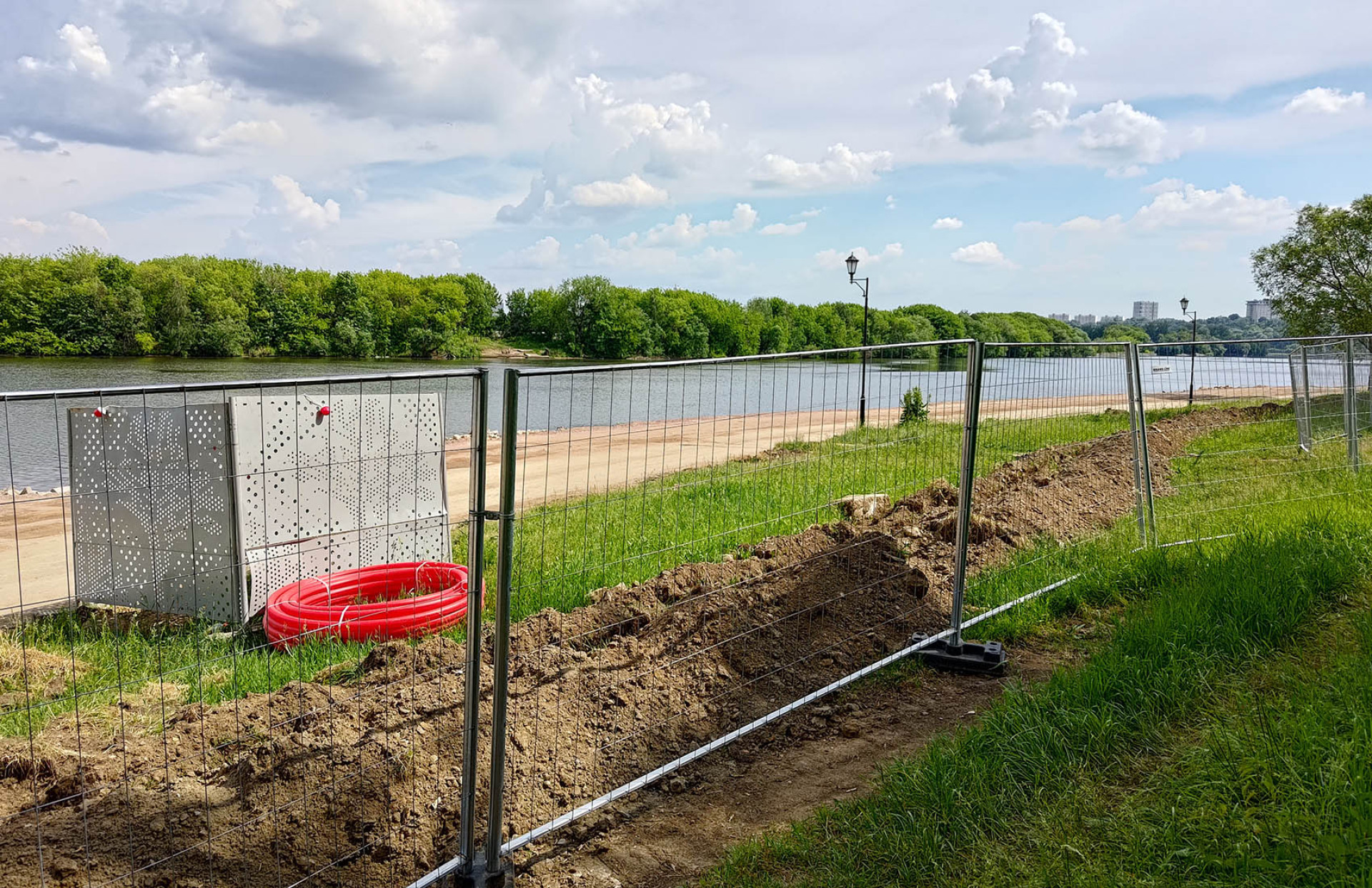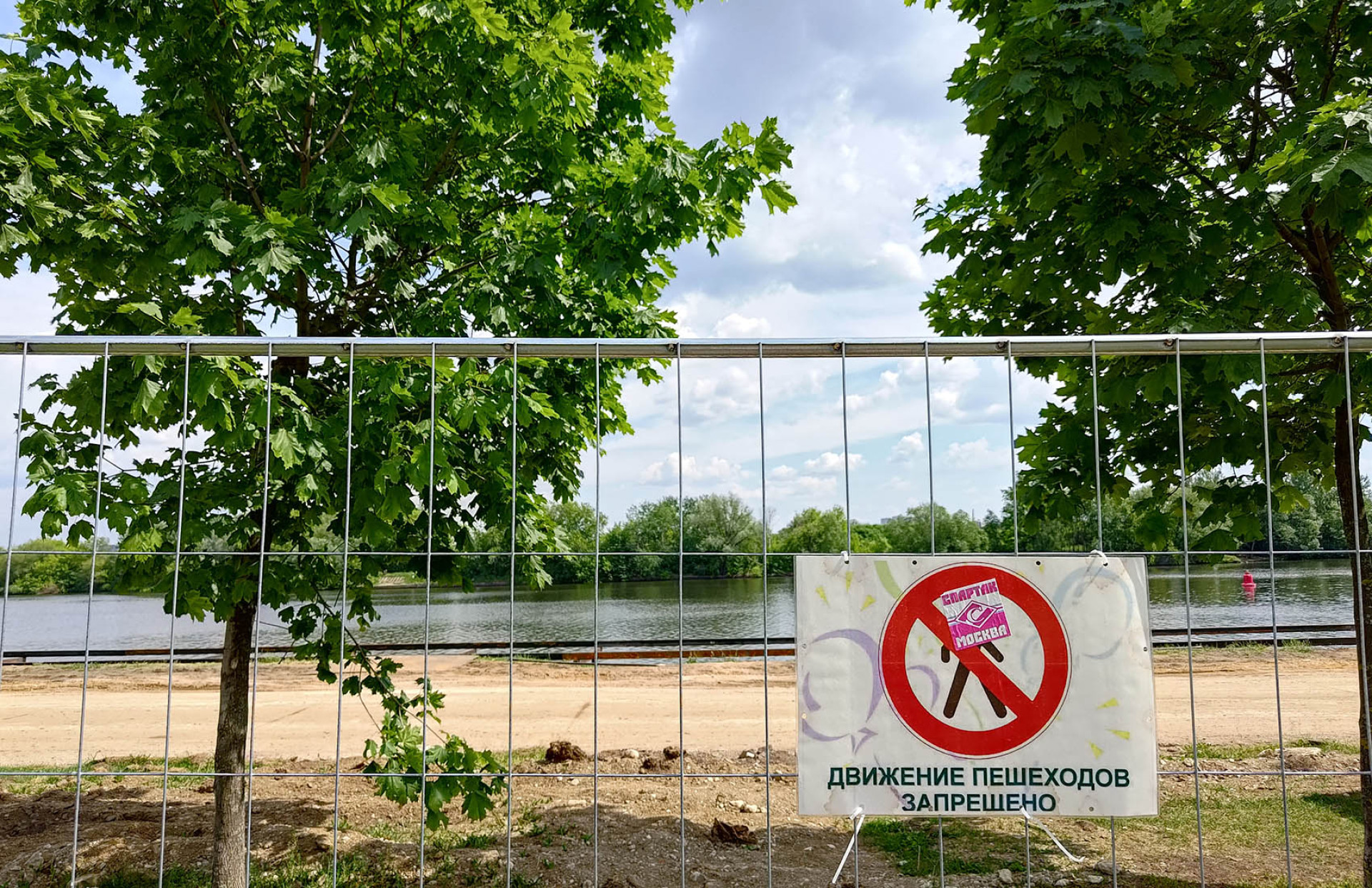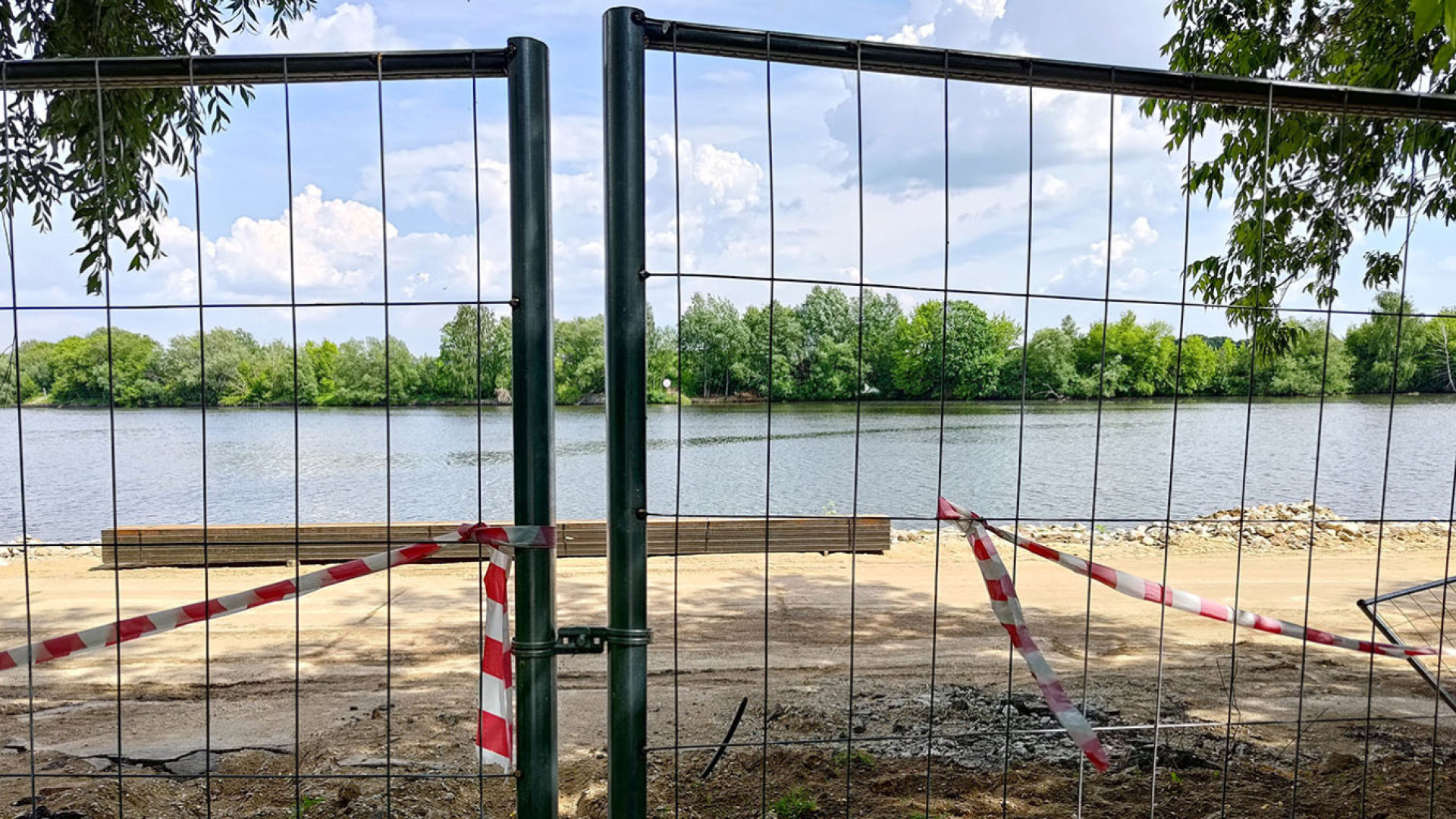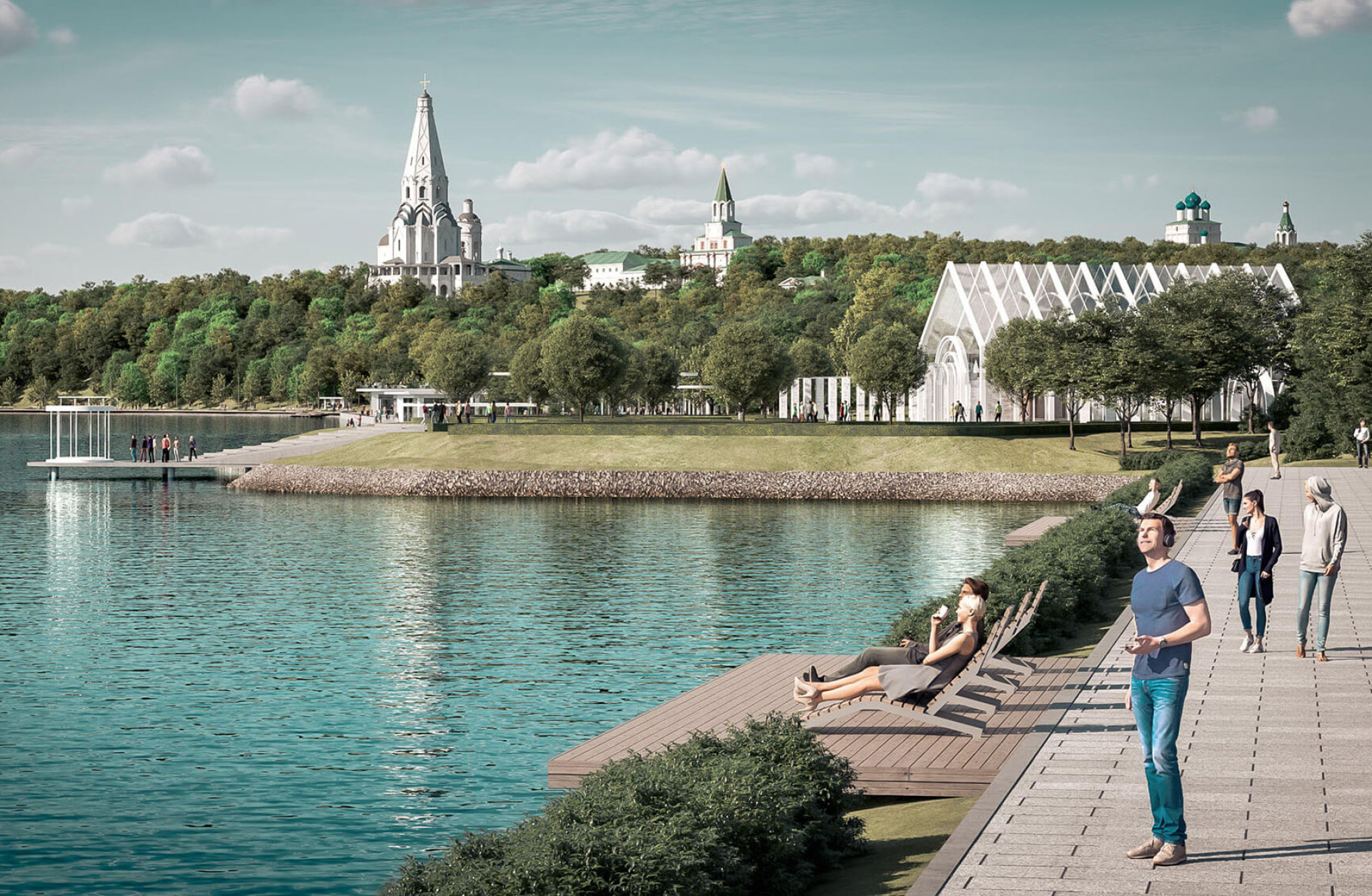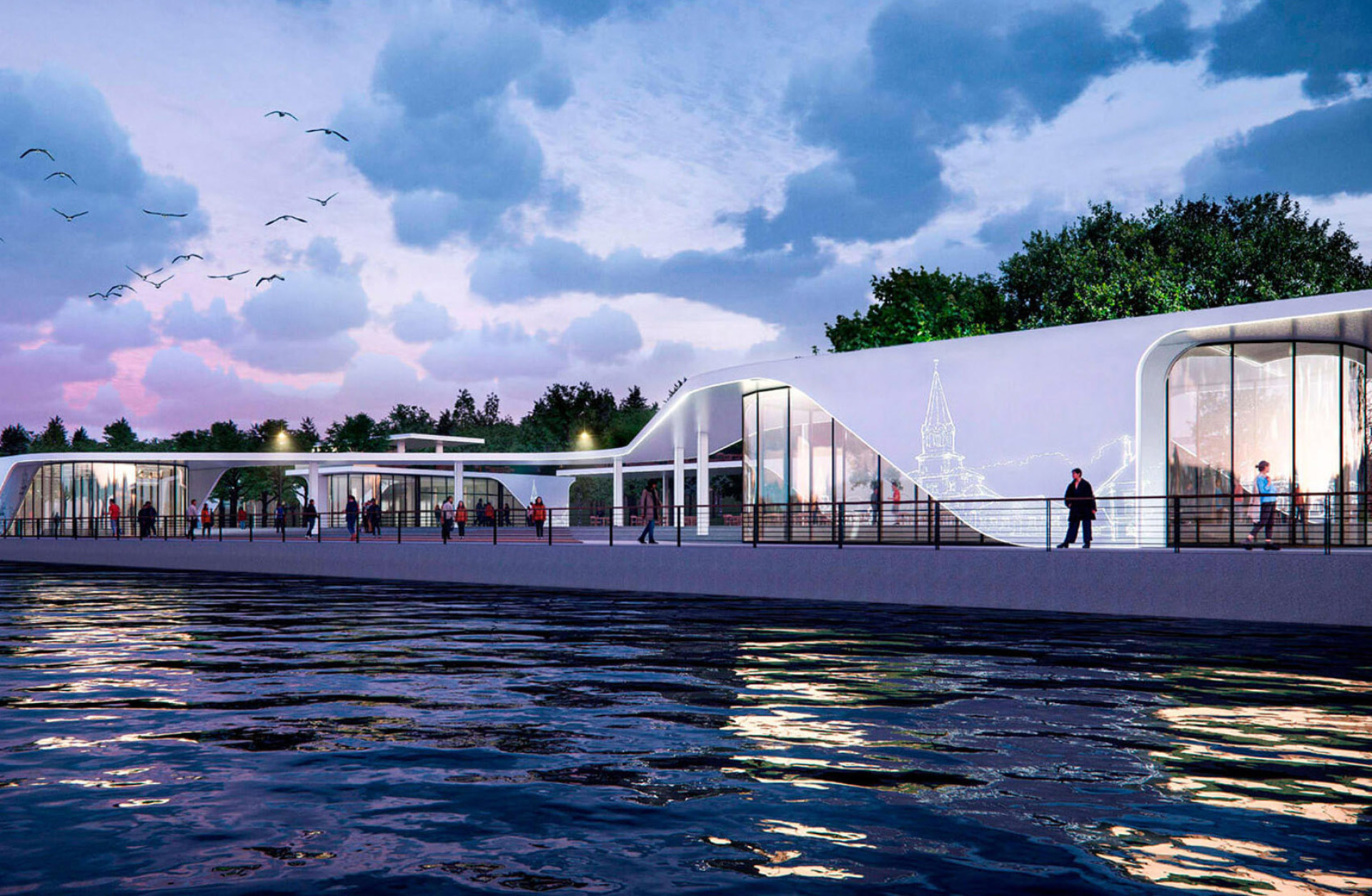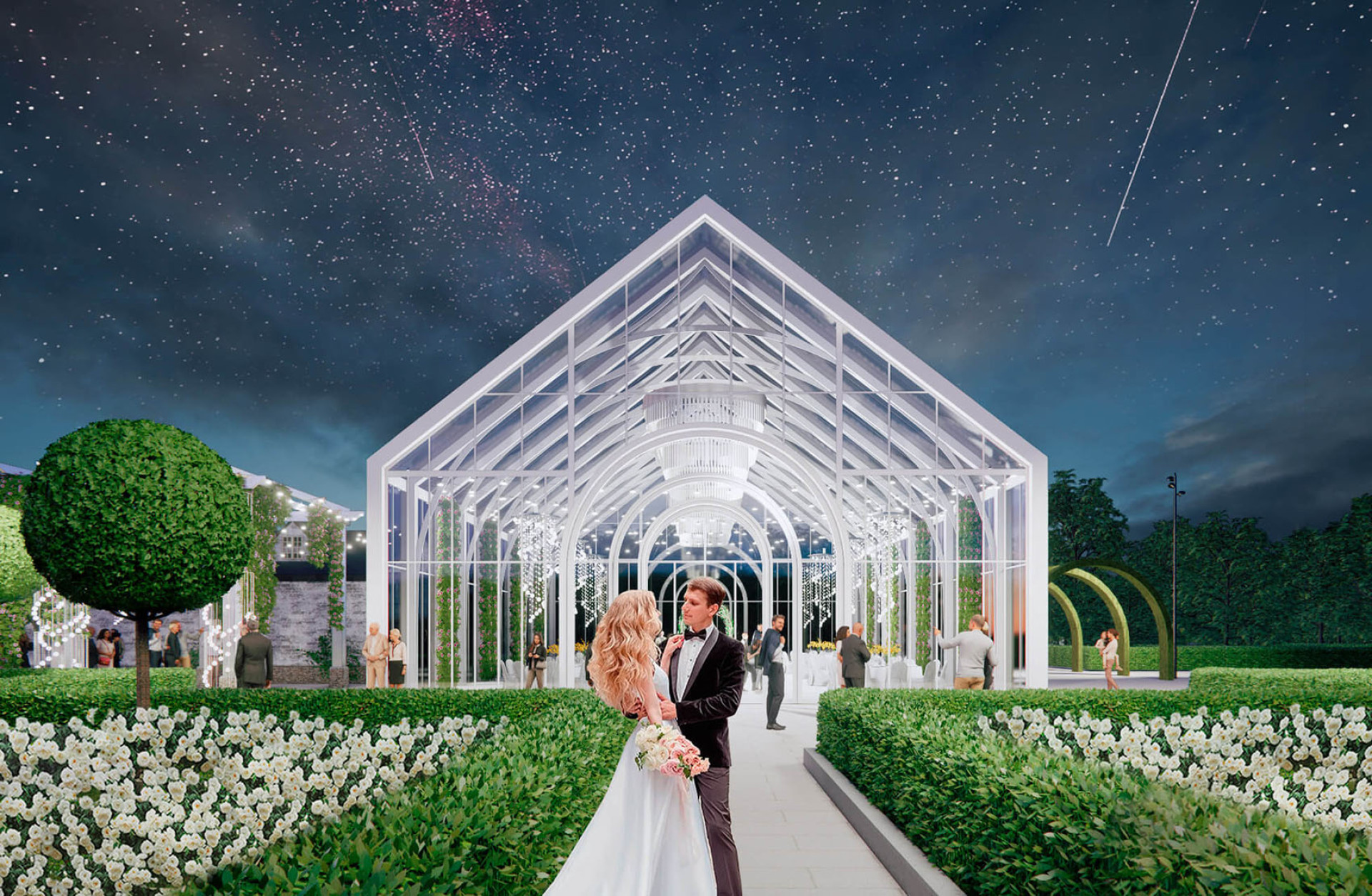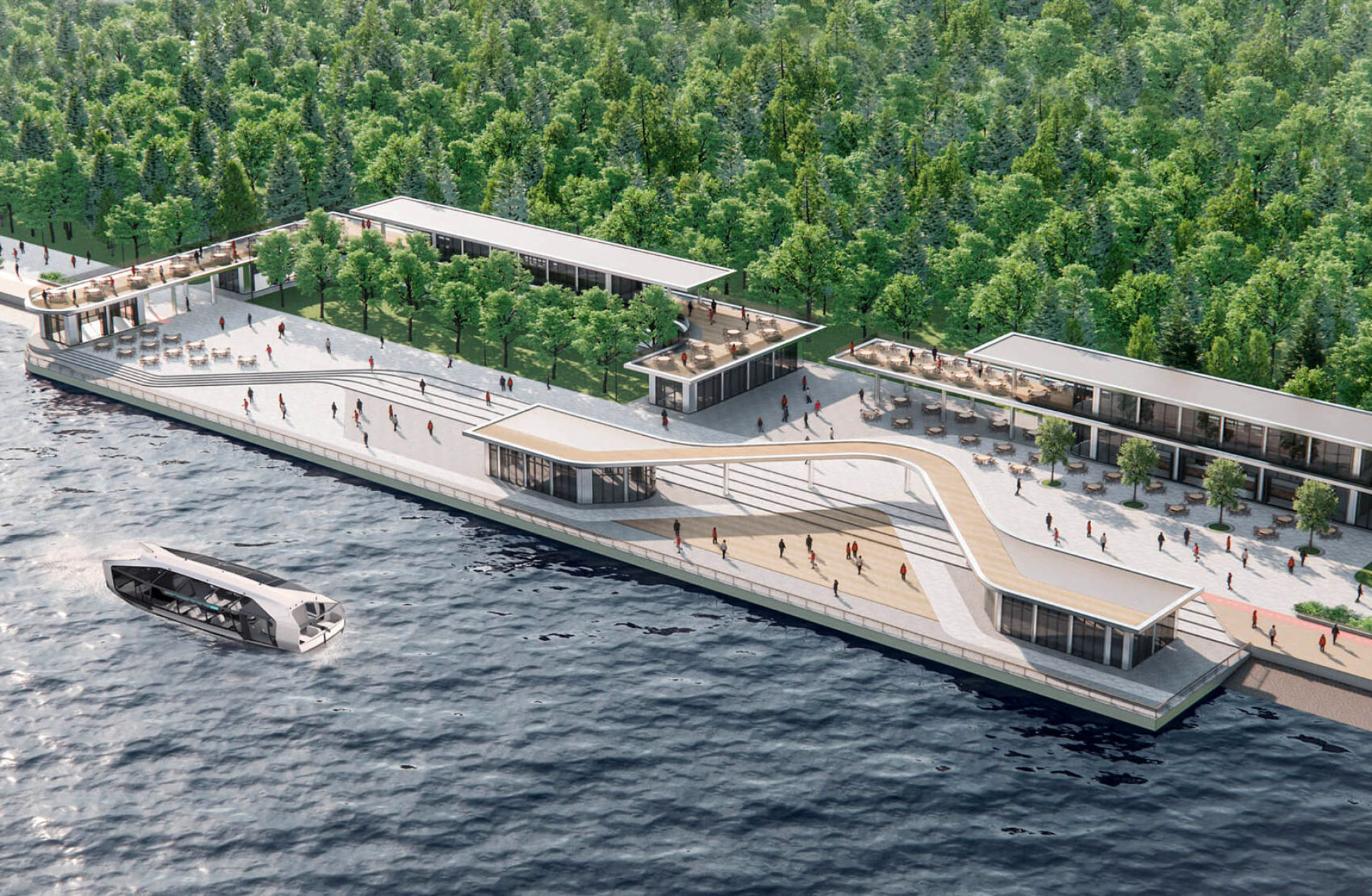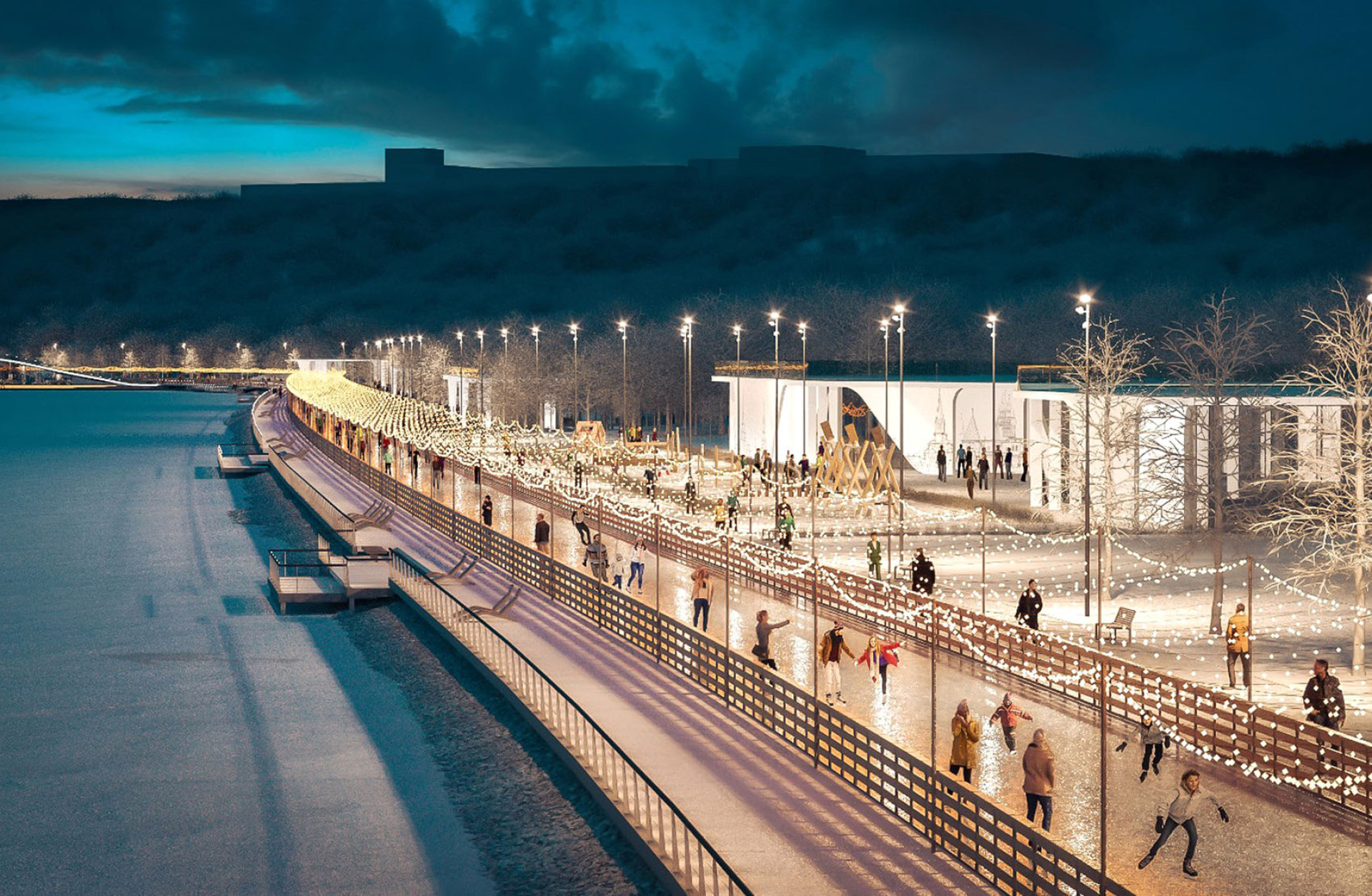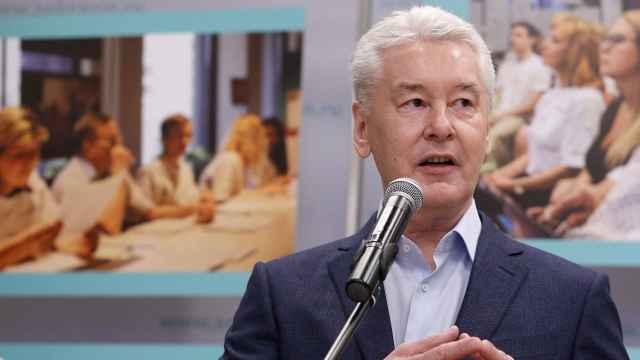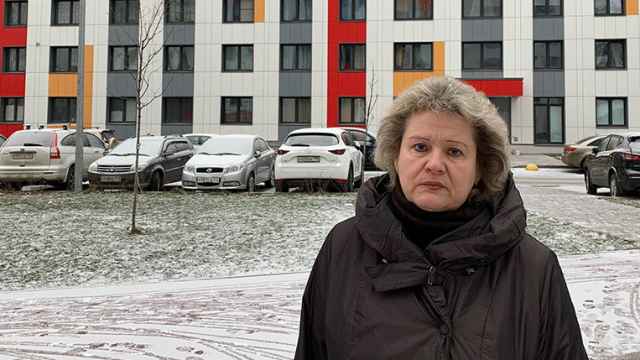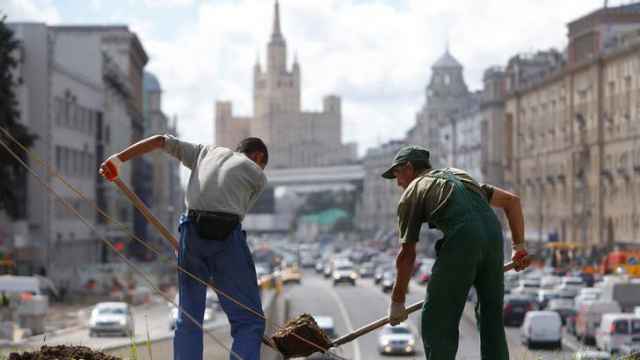MOSCOW — On a hot early summer afternoon, city dwellers take refuge in the shade of the capital’s historic Kolomenskoye Museum-Reserve, playing sports, having picnics and painting en plein air, all to the tune of lively birdsong.
This picturesque atmosphere vanishes as one approaches the park’s Moskva River embankment, a once-popular spot for walkers and joggers now ripped up by noisy heavy machinery.
“When I saw this for the first time, I felt so bad, so much pain. I just cried for 10 to 15 minutes,” Kristina, an urban forest activist, told The Moscow Times.
“The most upsetting thing was that there is a sign saying this is a natural sanctuary — and behind it, everything is destroyed. There is absolutely nothing sacred for the people who are doing this,” said Kristina, a resident of a neighboring district who comes to this former imperial estate for nature walks.
In early April, Mayor Sergei Sobyanin unveiled a three-year blagoustroystvo (“improvement”) plan for Kolomenskoye, the famed park that is home to the 16th-century Church of the Ascension, a UNESCO World Heritage site.
In just 10 days, construction machines had broken ground in the park, triggering outrage from the community. They said that the works encroached on a natural monument — a category of protected area that bans any activity that could compromise the site’s integrity.
Locals posted photos of the havoc wrought by construction on the protected Forb Meadows area, where a nearby sign states that rare grasses grow.
Andrei, 66, a local taking his dog for a walk, said he believed the construction should not take place during summer, the park’s peak season for visitors.
"But they [city authorities] spend money whenever they want. Raspil is raspil," he told The Moscow Times, using a common Russian term for a corruption scheme without providing concrete evidence.
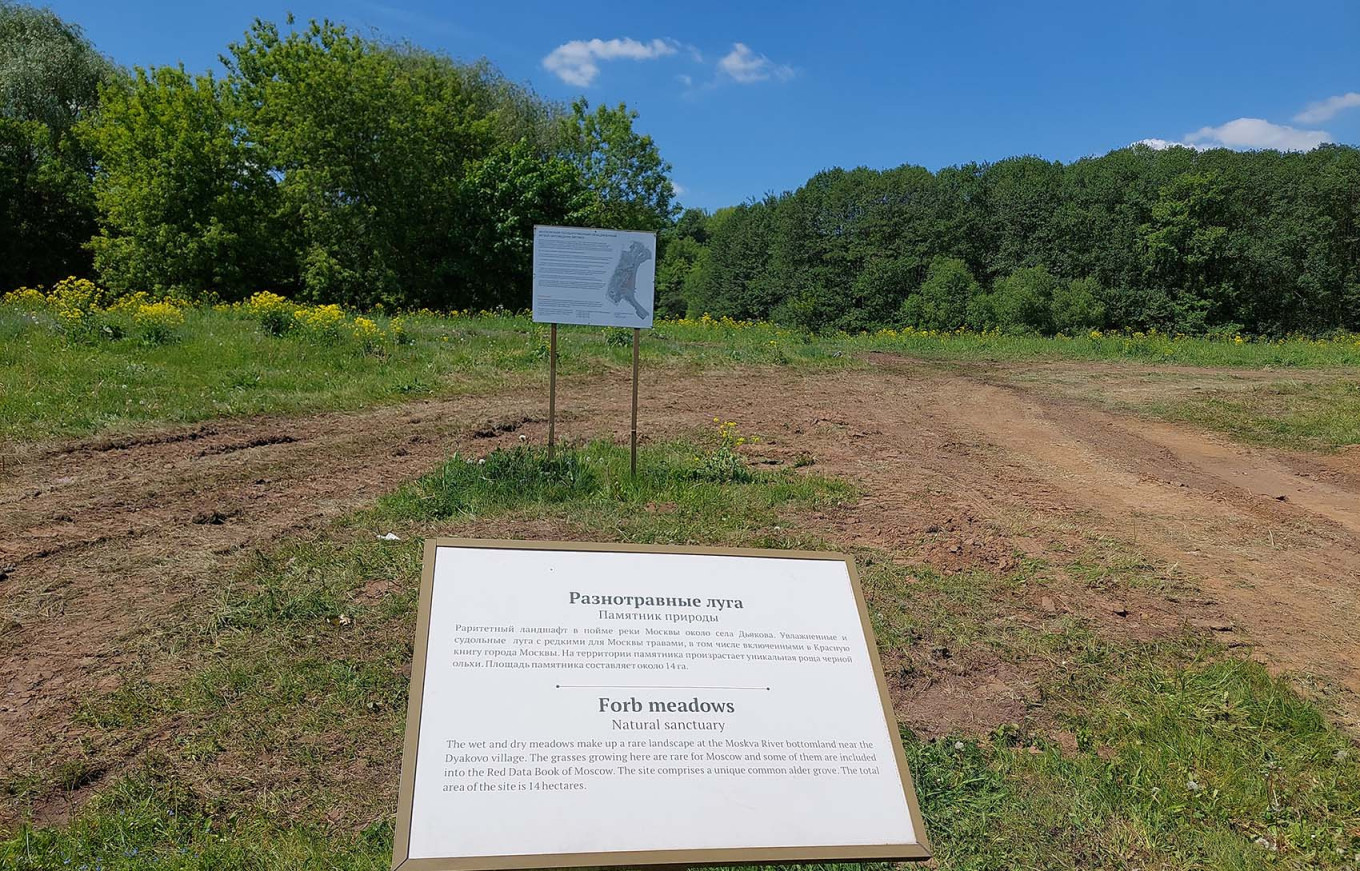
Enjoying nature in style
The latest addition to Moscow’s long list of infrastructure and city beautification projects during Sobyanin's nearly 14-year tenure, the Kolomenskoye development aims to transform the park’s Moskva River waterfront from a modest walkway into a sleek, modern recreational space.
The blueprint includes a new observation deck, amphitheaters, sports and playgrounds, shops, restaurants and a 1.8-kilometer ice rink.
Sobyanin says a new wave of blagoustroystvo is needed given city parks’ increasing popularity among Muscovites, which has put a strain on their facilities in recent years.
To that end, Moscow has allocated 245 billion rubles ($2.7 billion) in total for urban development in 2024, several times higher than most Russian regions' total budgets for this year. Construction projects in the capital often draw criticism for corruption-prone schemes.
“The waterfront [in Kolomenskoye] lacks many basic amenities such as jogging tracks. There is a shortage of entertainment for children, food pavilions and rental services,” Sobyanin wrote on his blog in April, stressing that the project will address these issues while preserving the park’s “unique spirit.”
Today, several kilometers of the embankment are fenced off, with excavators uprooting land that used to be a grassy meadow, a Moscow Times reporter saw last week.
“This is the first stage of a huge project aimed at destroying historical heritage and protected natural areas for someone's personal interests. If we don't stop this madness now, tomorrow we will lose Kolomenskoye irreversibly,” Moscow ecologist Dmitry Gornostaev said on his Telegram channel.
Neither concerned residents nor a visiting State Duma deputy were allowed to see the project permits, the Svobodnaya Pressa outlet reported, with workers in Kolomenskoye simply “running away” from the latter.
Two young women visiting Kolomenskoye from another district to walk their dog were forced to take a detour around a fenced-off stretch of promenade.
“There used to be a nice waterfront there,” one of the women, named Yulia, told The Moscow Times, pointing to the construction area. “If the project involves logging and is large-scale, then I'm against it. But I do support blagoustroystvo as long as it causes minimal damage to the environment.”
While authorities maintain that development projects provide Muscovites with new leisure, housing or commuting opportunities, conflicts arise when they target protected areas or clash with locals’ opinions.
This year, plans to construct a road and residential buildings inside Losiny Ostrov (“Moose Island”), a national park partially within Moscow's city limits, sparked public backlash.
In recent years, fights over construction in Moscow’s Troitsky and Bitsevsky Forests have even escalated into physical altercations.
About 60% of over 2,200 respondents disapprove of the Kolomenskoye project and prefer the park to remain untouched, according to an online survey by the local MSK1 media outlet.
Kristina said that she is not against blagoustroystvo per se and has even approved of some projects. It’s only when developers start “meddling where they absolutely should not” that she has a problem.
“Sometimes there is a stinky stream … where syringes, tires and other trash were lying. They would clean it up, make a path and it would become a sort of park — I liked that,” she said.
“But there are specially protected areas that must not be touched. The law states that you cannot even stick a shovel or pick a flower there. Unfortunately, [the authorities] pay no attention to this at all and just destroy everything,” she said.
Kristina asked that her name be changed for this article out of concern for possible blowback for publicly criticizing the authorities.
Having no say
Andrei, who has lived near Kolomenskoye for 20 years, voiced concerns about the project’s impact on local archaeological sites, some of which, he said, are even older than the Kremlin.
“They are digging very deeply. I thought to myself, 'Wow, there might be an archaeological layer here',” he told The Moscow Times. “It is unclear why they are being so reckless. But let them dig, whatever."
Andrei added that he cannot give his opinion on the project until it is completed. It depends, for example, on the new embankment’s safety, as the previous one failed to prevent children from falling into the water.
“We need to look at the results. Plus, how much money was allocated for this. In other words, was it worth it?” he said.
Moscow City Hall’s balancing act boils down to making money — often by building commercial facilities in green areas — while trying to avoid angering locals in the process, an expert from Russia’s independent Coalition for Sustainable Development told The Moscow Times.
Although developing the local economy and recreational spaces is important, it should not come at the expense of protected areas, they said.
“The only right decision in this case is not to destroy natural areas and to find places where [development] poses no danger. Even near Kolomenskoye, there are plenty of such sites,” said the expert, who declined to disclose their name due to the potential repercussions of publicly criticizing the authorities.
One best practice for balancing stakeholder interests is participatory planning, which involves the entire community in project design from the start, rather than blindsiding residents with a plan predetermined by authorities and developers.
“Participatory planning is comparable to our [Russian] public hearings, but [it is] less formal,” the expert said. “[Russian] public hearings often turn into a battle, with enraged locals coming to destroy any ideas the city proposes.”
“Of course, the city does not have a big desire to discuss these things either, so creating more adequate opportunities for discussion is how such conflicts are resolved,” they said.
Meanwhile, a 2022 Moscow law scrapped public hearings for urban planning projects, stripping residents of a means to voice concerns before development starts.
Although Russian legislation emphasizes the importance of nature conservation, Moscow officials often seek “to squeeze maximum profit from every square meter," the expert said.
“Protected areas do not generate income. They simply exist, purifying the air and water. And no one [in Moscow] understands how to measure this in terms of money — one cannot include it in the 2024 budget, for example,” the expert said.
“It may only be a strategic decision that, hypothetically, Moscow understands the value of preserving such relatively untouched ecosystems and imposes restrictions like: 'We do not interfere with ecosystems because they have a value of a higher level'.”
A Message from The Moscow Times:
Dear readers,
We are facing unprecedented challenges. Russia's Prosecutor General's Office has designated The Moscow Times as an "undesirable" organization, criminalizing our work and putting our staff at risk of prosecution. This follows our earlier unjust labeling as a "foreign agent."
These actions are direct attempts to silence independent journalism in Russia. The authorities claim our work "discredits the decisions of the Russian leadership." We see things differently: we strive to provide accurate, unbiased reporting on Russia.
We, the journalists of The Moscow Times, refuse to be silenced. But to continue our work, we need your help.
Your support, no matter how small, makes a world of difference. If you can, please support us monthly starting from just $2. It's quick to set up, and every contribution makes a significant impact.
By supporting The Moscow Times, you're defending open, independent journalism in the face of repression. Thank you for standing with us.
Remind me later.


